The Toshiba RC100 SSD Review: Tiny Drive In A Big Market
by Billy Tallis on June 14, 2018 9:00 AM ESTAnandTech Storage Bench - Light
Our Light storage test has relatively more sequential accesses and lower queue depths than The Destroyer or the Heavy test, and it's by far the shortest test overall. It's based largely on applications that aren't highly dependent on storage performance, so this is a test more of application launch times and file load times. This test can be seen as the sum of all the little delays in daily usage, but with the idle times trimmed to 25ms it takes less than half an hour to run. Details of the Light test can be found here. As with the ATSB Heavy test, this test is run with the drive both freshly erased and empty, and after filling the drive with sequential writes.
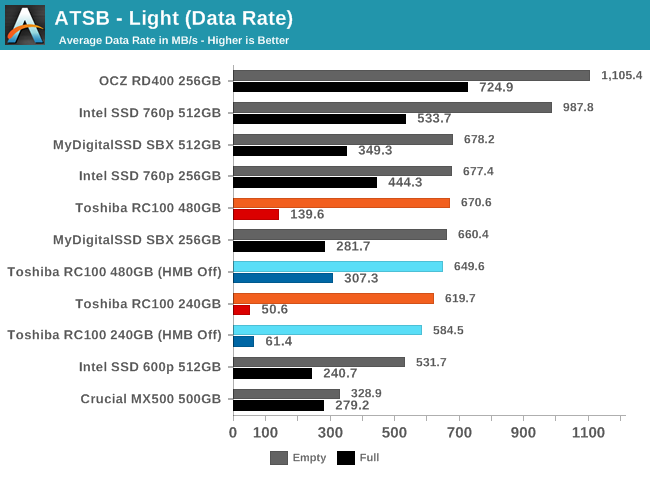
Once again the 240GB Toshiba RC100 exhibits very poor performance overall when the drive is full, and the 480GB doesn't do particularly well in that situation either. But for the more typical case of running the Light test on a drive that isn't full, both RC100s are competitive with other low-end NVMe SSDs and much faster than SATA drives.
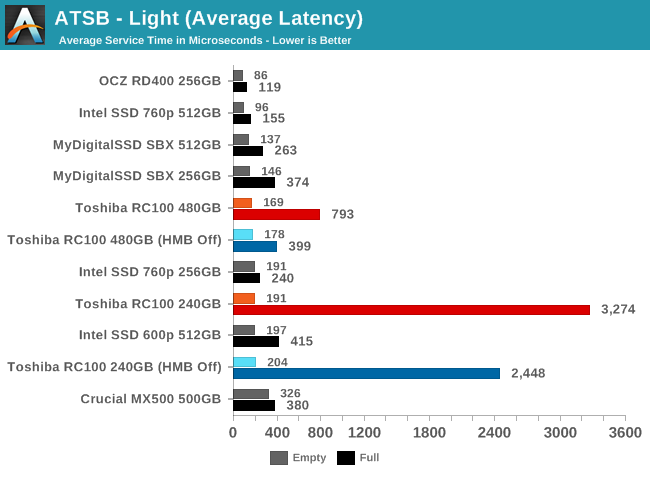
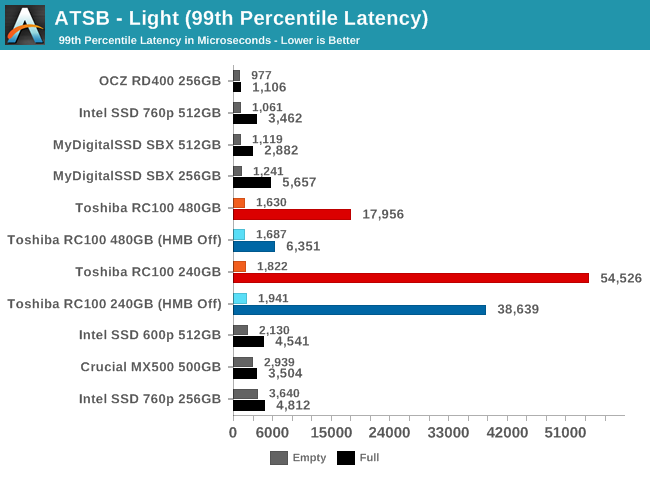
Most of the low-end NVMe SSDs show substantially higher latency when running the Light test on a full drive, so the RC100's results aren't quite as extreme an outlier. The RC100 is actually better off with HMB off for the full-drive runs of this test, possibly because the overhead of the extra PCIe communication isn't worthwhile when the cache isn't going to be of much use.
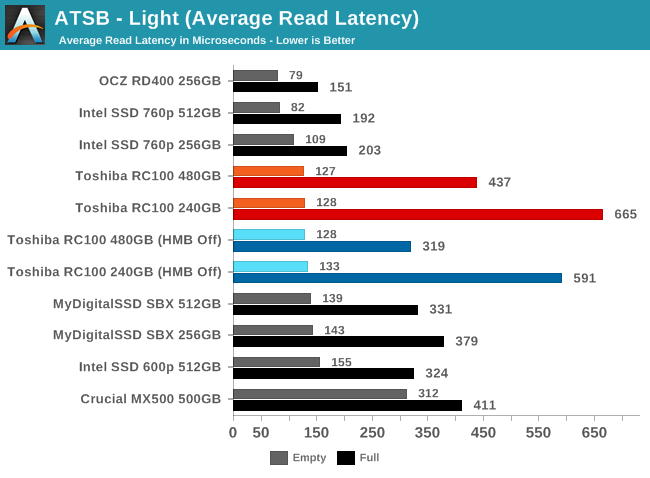
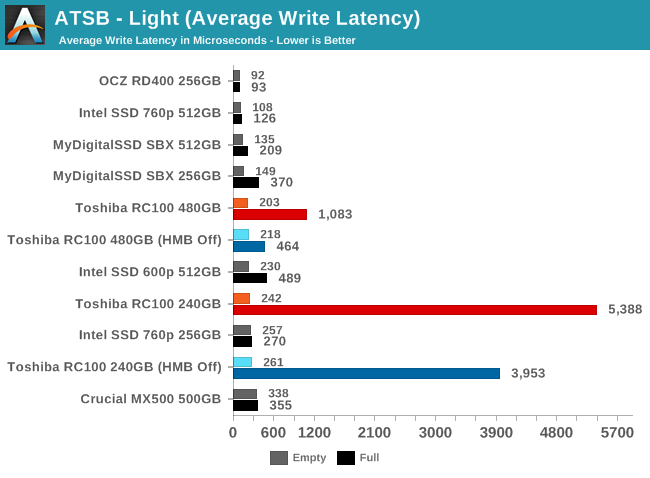
Average read and write latencies are both competitive for the RC100's empty-drive test runs, and the full-drive read latencies are high but aren't extreme outliers. It's the write latency that really causes problems for the RC100 when it is full.
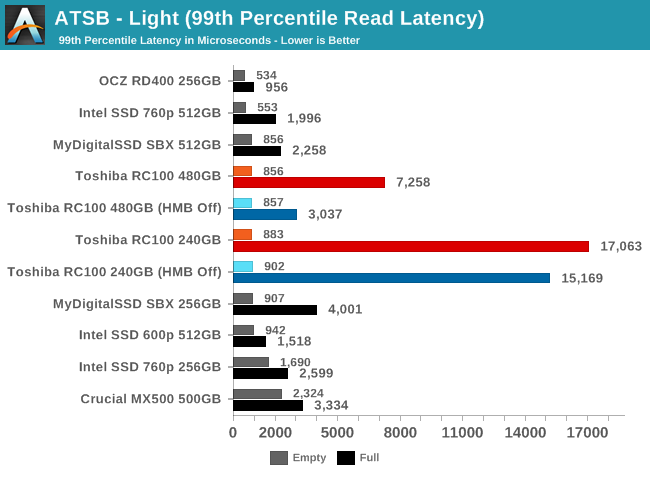
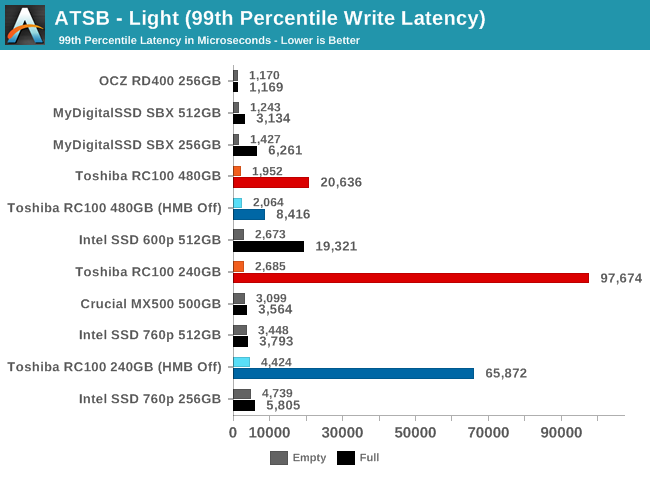
The 99th percentile read and write latency scores show similar results to the averages, but more prominently highlight the drives that are having trouble—which is mostly just the RC100, though the 600p's 99th percentile write latency is pretty bad, too.
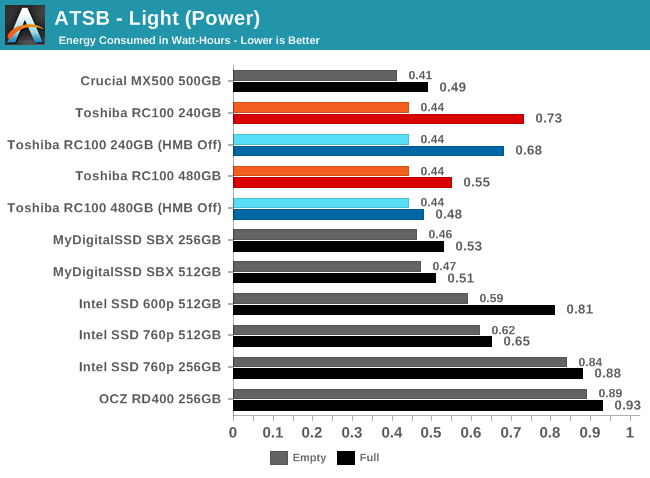
The Toshiba RC100 doesn't quite manage to beat the Crucial MX500 SATA drive for energy usage on this test, but it's first-place among its NVMe competition for the empty-drive test runs, and isn't unreasonably power-hungry even when it is performing poorly.










62 Comments
View All Comments
belandresw@gmail.com - Monday, July 2, 2018 - link
The most important feature of an SSD should be tits controller. Because a reliable and durable controller will provide the efficiency of the SSD for the PC.Zim - Friday, July 12, 2019 - link
Yes, very important to control da tits.